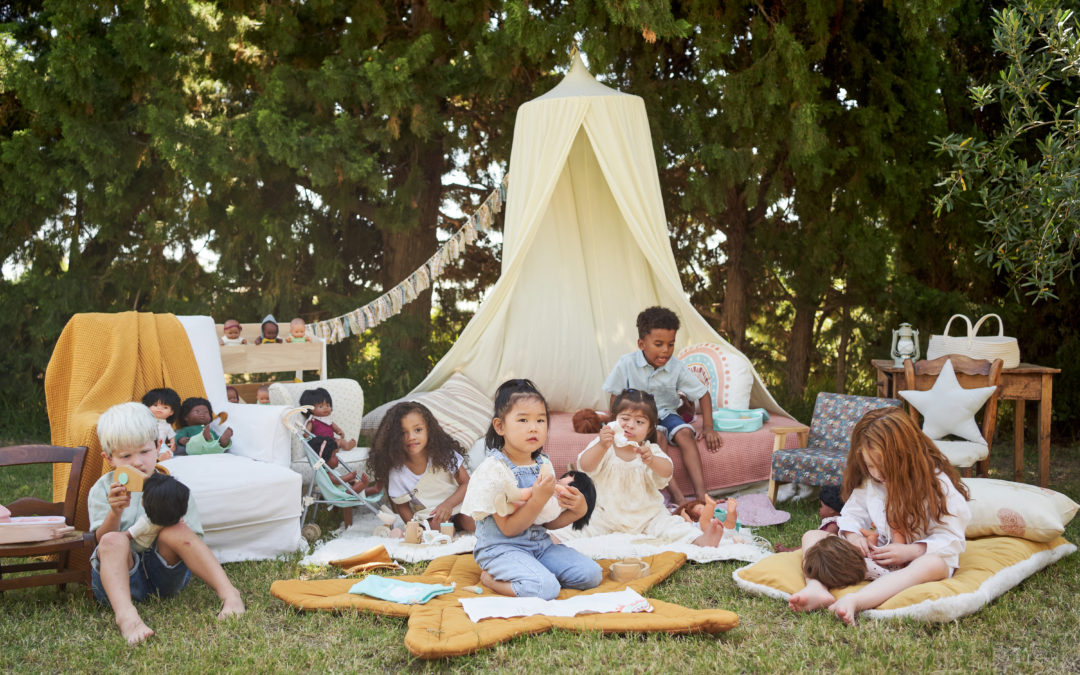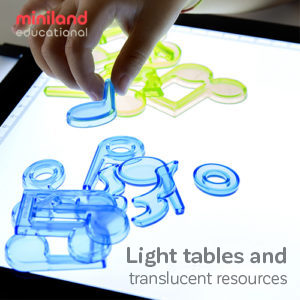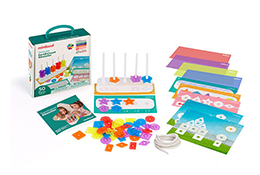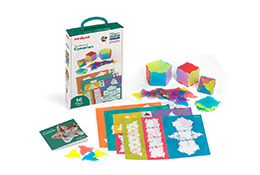The International Day of Friendship was proclaimed in 2011 by the UN General Assembly with the idea that friendship between peoples, countries, cultures and individuals can inspire peace efforts and build bridges between communities, according to UN.org.
The resolution places emphasis on involving young people, as future leaders, in community activities that include different cultures and promote international understanding and respect for diversity.
At Miniland, we always find a way to incorporate acceptance and diversity celebrations into each and every theme we spotlight, building upon the foundation of Social Emotional Learning (SEL). It is through this practice that we help young children build the foundation of skills they need to navigate their lives in later years.
One of the most important skills children learn at this age is the art of making and keeping friends. It is in this time that they learn how to treat one another kindly, respect other children’s feelings, and learn to communicate their needs.
The most natural way to foster friendships among young children is through the innocence and magic of play.
In honor of this most important day, July 30, 2022, we encourage you to create Stations of Play throughout your classroom, to foster friendships among your students. Friendship Day can be every day if you choose it to be!
- Doll Station: With all the toys available on the market, few have stood the test of time like the classic nature of dolls. Dolls help children learn nurturing skills, empathy and language building. They also become instant companions and friends. Have various dolls available in your Doll Station that represent various ethnicities, genders and conditions. Children will delight in seeing themselves represented in these dolls and seeing dolls that may not look like them, thus further strengthening acceptance. When children play games with dolls like “family” or “house”, they learn to communicate with one another kindly and cooperate. By taking care of a doll, they learn how to take care of one another.
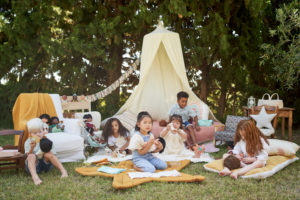
- Emotion Station: To make a friend, kindness and acceptance is usually the easiest way to get started. One of the best ways to teach inclusivity, acceptance and kindness is through a strong dose of Social Emotional Learning. Have toys available that focus on identifying and respecting emotions, like Miniland’s Emotiblocks along with games that help students work together to find the solutions, like our Emotions Detective.
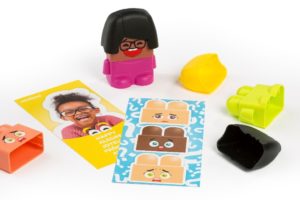
- Mindfulness Station: Get up and get moving! Children love to move around and play games together. Introduce mindfulness through Mindful Kids, a fun and engaging game that promotes concentration, self-control and the resolution of conflicts in the classroom with the practice of breathing, relaxation, yoga and meditation exercises. All of these skills help self-regulate emotions as well as increase patience and understanding when students are interacting with one another. Plus, it’s just plain fun! The game includes interchangeable discs on a spinning top that allows children to try out different techniques and games geared to improving their mental and physical health. Just spin the “top” and see which position or activity it lands on. Prepare for lots of laughter as students try to attempt all the poses as well as new ways to control emotions, practice self-awareness and improve their social skills.
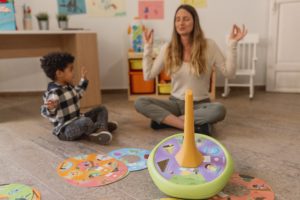
- Interactive Station: Combine physical play with corresponding online components, like our Teach & Play resources. By providing direction on assignments and lessons that encourage students to celebrate their identities and learn more about the identities of their classmates, you’re creating an open forum where students feel seen, safe and appreciated. They will make bonds with one another, pinpointing similarities and appreciating differences to talk about. Teach & Play can be used with various Miniland toys & games, including the games we’ve mentioned here, Emotiblocks and Mindful Kids.
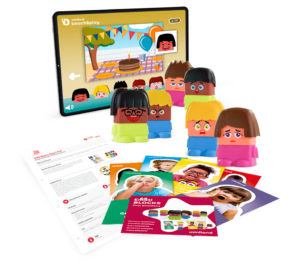
By offering multiple play opportunities in your room for children to play, you’re helping your students learn the central life skill of making and keeping friends. Early childhood is such a crucial foundation period for learning many complicated skills, and what better way to learn them than through the open-ended magic of play.
